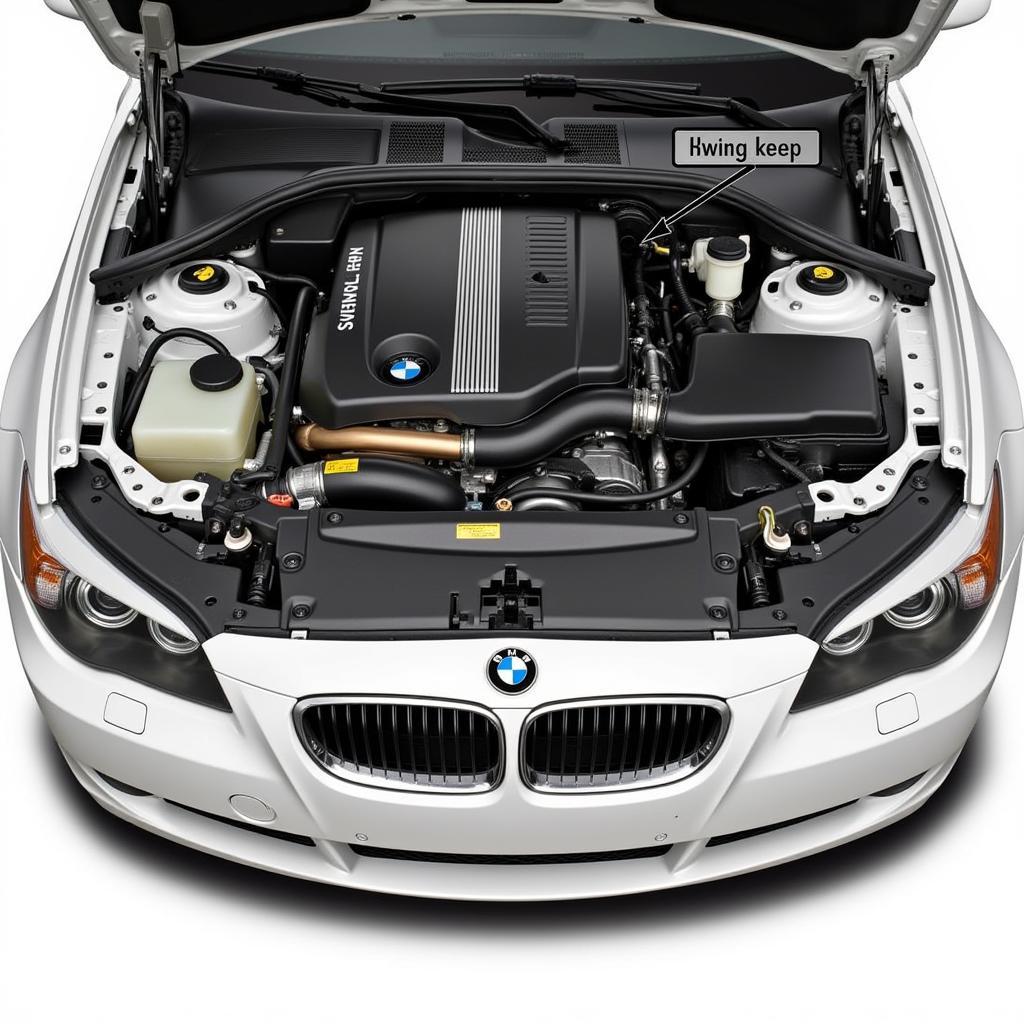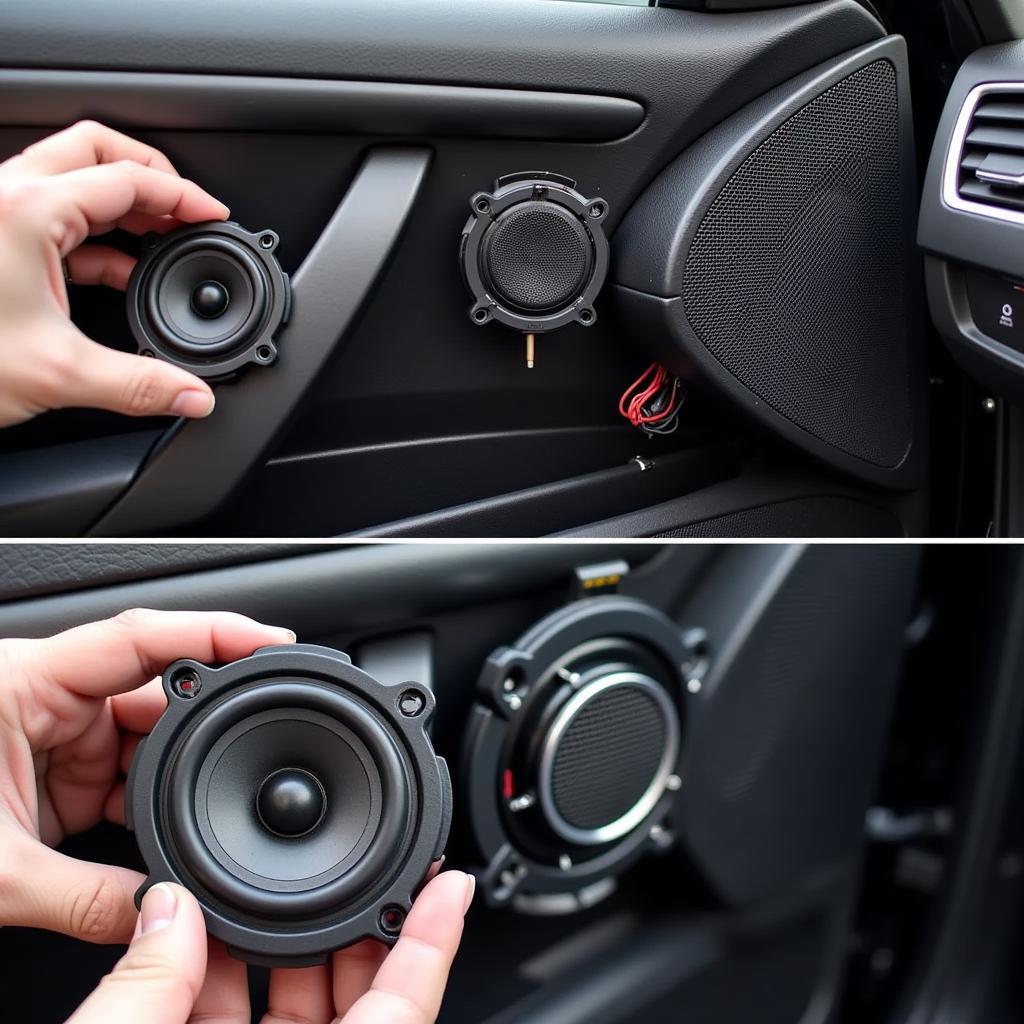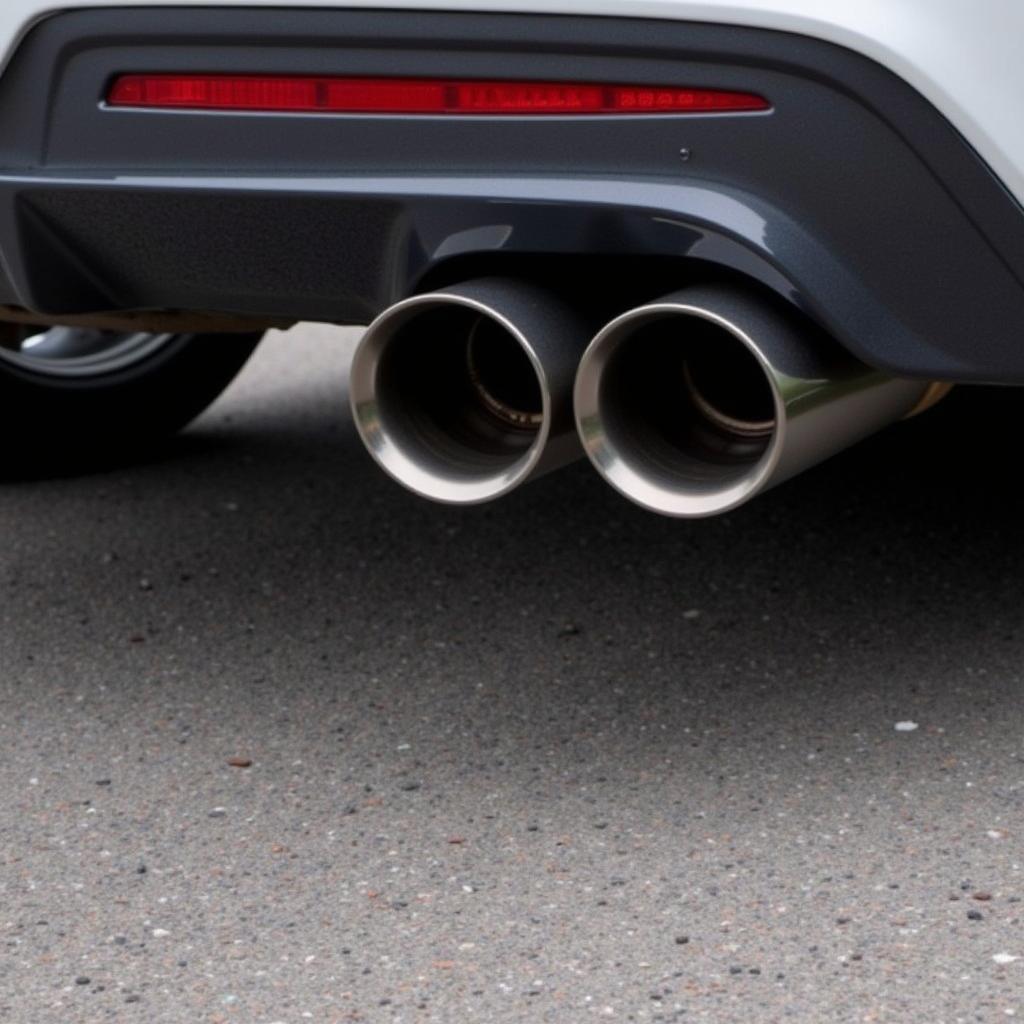That dreaded knocking sound coming from your BMW E90’s engine can be a real headache. Whether it’s a subtle tap or a loud bang, it’s a sign that something isn’t right and needs attention. This article will dive into the common causes of engine knocking in BMW E90s, how to diagnose the problem, and what solutions are available to get your car running smoothly again.
Understanding Engine Knock in Your BMW E90
Engine knock, also known as detonation, occurs when the air-fuel mixture in your engine’s cylinders ignites prematurely. Instead of a smooth, controlled burn, the mixture explodes, creating a knocking or pinging sound. This can lead to serious engine damage if left unaddressed. Understanding the potential causes is the first step towards fixing the issue.
Common Causes of BMW E90 Engine Knocking
Several factors can contribute to engine knocking in a BMW E90. These include:
- Low-Quality Fuel: Using fuel with a lower octane rating than recommended can cause pre-ignition and knocking.
- Carbon Buildup: Over time, carbon deposits can accumulate in the combustion chamber, increasing compression and leading to knocking.
- Faulty Spark Plugs: Worn or damaged spark plugs can disrupt the ignition timing, causing the fuel to ignite at the wrong time.
- Ignition Timing Issues: Incorrect ignition timing can also lead to pre-ignition and knocking.
- Lean Air-Fuel Mixture: A lean mixture (too much air, not enough fuel) can cause the combustion chamber temperature to rise, increasing the risk of knocking.
- Engine Overheating: Excessive heat can pre-ignite the air-fuel mixture, leading to knocking.
- Worn Connecting Rod Bearings: These bearings can create a knocking sound, especially under load.
 BMW E90 Engine Compartment Showing Potential Low-Quality Fuel Issues
BMW E90 Engine Compartment Showing Potential Low-Quality Fuel Issues
Diagnosing the Knocking Sound
Pinpointing the exact cause of the knocking sound requires a systematic approach:
- Check the Fuel: Start by ensuring you’re using the correct octane fuel recommended by BMW.
- Inspect the Spark Plugs: Examine the spark plugs for wear and tear. Replace them if necessary.
- Check for Error Codes: Use a diagnostic scanner to check for any stored error codes related to the engine or ignition system.
- Compression Test: A compression test can reveal issues with the cylinders or piston rings.
- Listen Carefully: The characteristics of the knocking sound can provide clues. A light ticking might indicate carbon buildup, while a heavier knock could suggest a more serious problem like worn bearings.
Solutions for BMW E90 Engine Knocking
Once you’ve identified the cause of the knocking, you can take appropriate action:
- Use Higher Octane Fuel: Switching to the recommended octane fuel can often resolve knocking caused by low-quality fuel.
- Decarbonize the Engine: Cleaning the combustion chamber of carbon deposits can improve performance and reduce knocking.
- Replace Spark Plugs: Installing new spark plugs can restore proper ignition timing.
- Adjust Ignition Timing: If the timing is off, a mechanic can adjust it to the correct specifications.
- Address Lean Air-Fuel Mixture: Fixing any issues causing a lean mixture, such as vacuum leaks or faulty sensors, can eliminate knocking.
- Repair or Replace Worn Components: Worn connecting rod bearings or other damaged parts may need repair or replacement.
What if the Knocking Persists?
If the knocking sound persists after trying these solutions, it’s crucial to consult a qualified BMW specialist. Ignoring the problem can lead to severe engine damage.
Conclusion
Addressing a knocking sound in your BMW E90 engine is essential to maintain its health and performance. By understanding the potential causes, utilizing proper diagnostic techniques, and implementing the correct solutions, you can prevent further damage and keep your E90 running smoothly. Don’t ignore that knock; address it promptly to avoid costly repairs down the road.
FAQ
- Can I drive my BMW E90 with an engine knocking sound? It’s not recommended. Continued driving with a knocking sound can cause significant engine damage.
- How much does it cost to fix engine knocking? The cost varies depending on the cause. It could range from a simple fuel change to more expensive repairs.
- Is engine knocking a common problem in BMW E90s? While not inherently a common problem, certain factors like poor maintenance or using low-quality fuel can contribute to it.
- How can I prevent engine knocking in my BMW E90? Regular maintenance, using the correct fuel, and addressing any potential issues promptly can help prevent knocking.
- What is the difference between engine knocking and ticking? Knocking is usually a more severe sound, indicating detonation, while ticking can be caused by less serious issues like lifter noise.
- Can bad motor mounts cause engine knocking? While motor mounts can cause noise and vibration, they typically don’t create a knocking sound related to detonation.
- Can a bad fuel pump cause engine knocking? A failing fuel pump can potentially contribute to a lean air-fuel mixture, which can lead to knocking.
Need Help? Contact Us!
For assistance with your BMW E90’s engine knocking or any other automotive needs, contact us via Whatsapp: +1 (641) 206-8880, Email: CARDIAGTECH[email protected] or visit us at 276 Reock St, City of Orange, NJ 07050, United States. We have a 24/7 customer support team ready to help.


